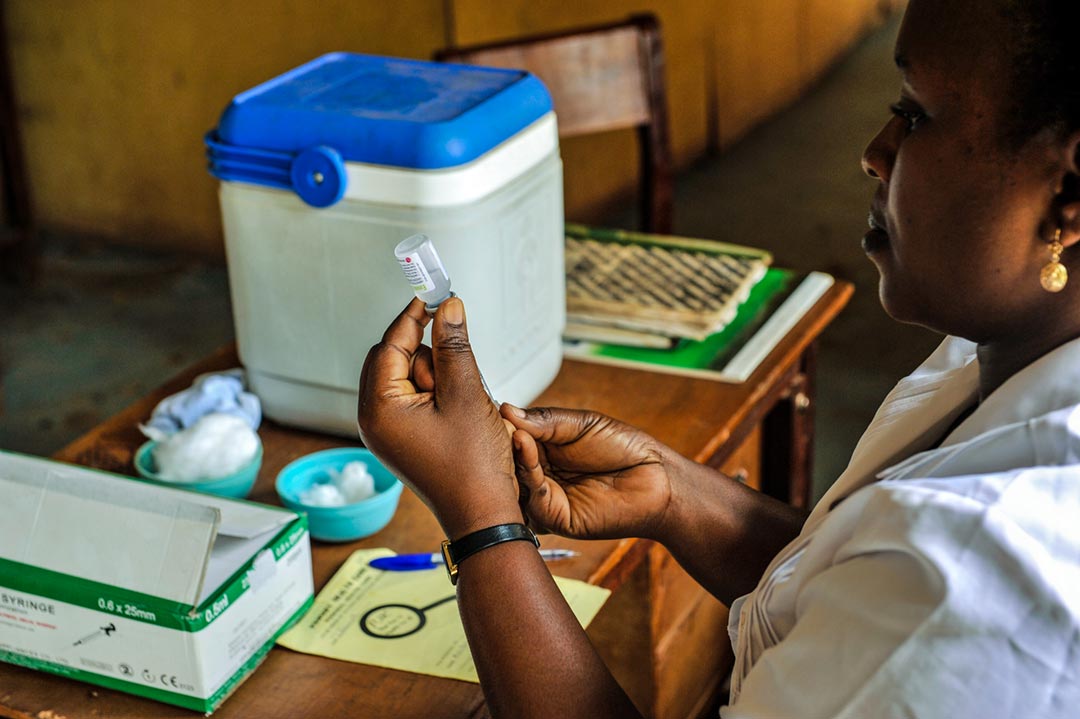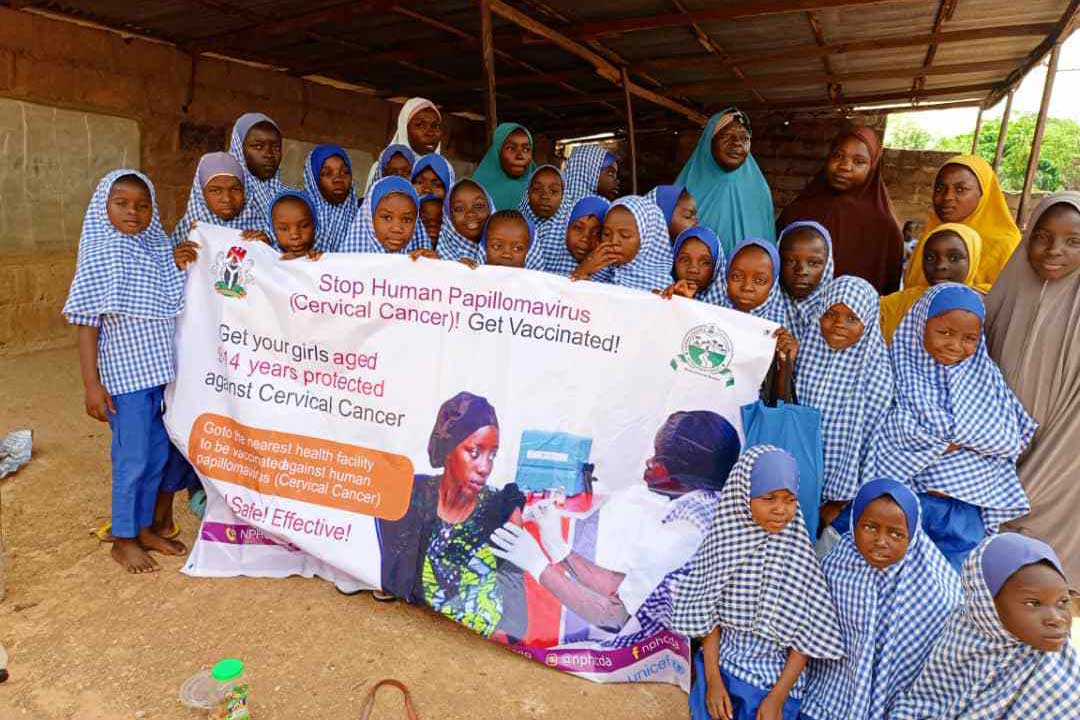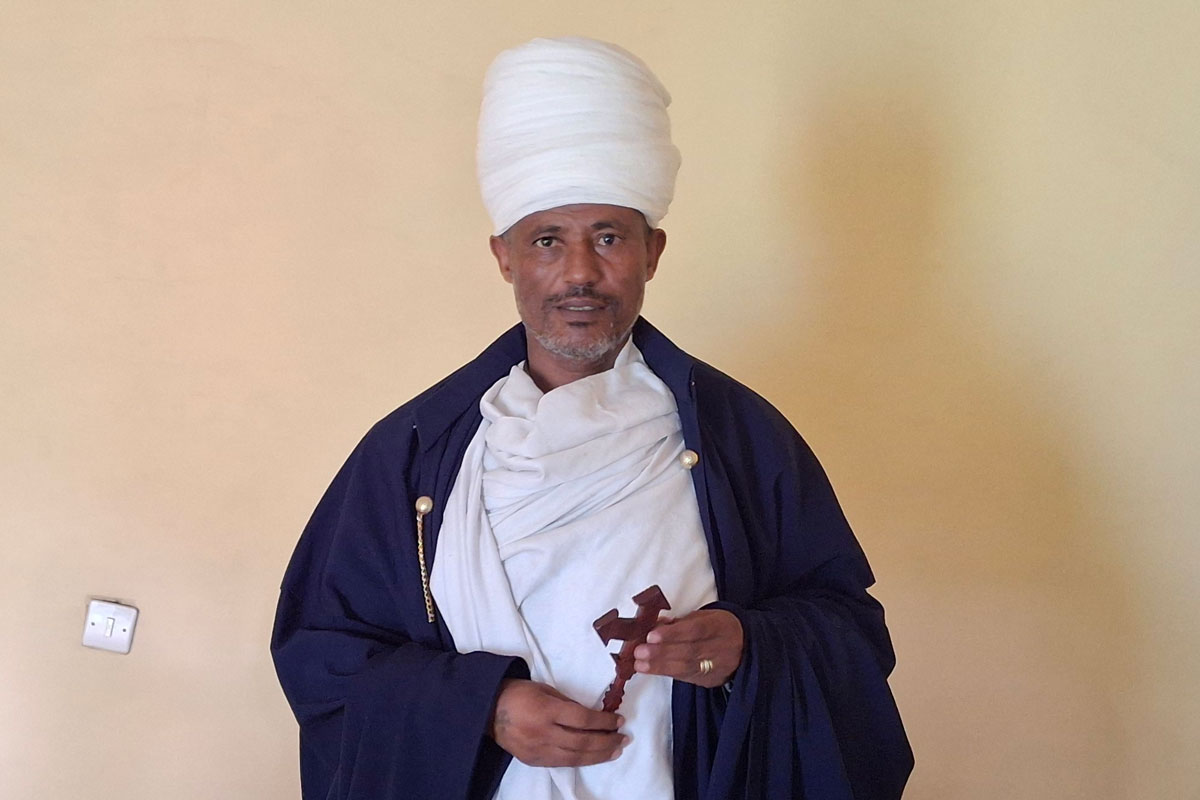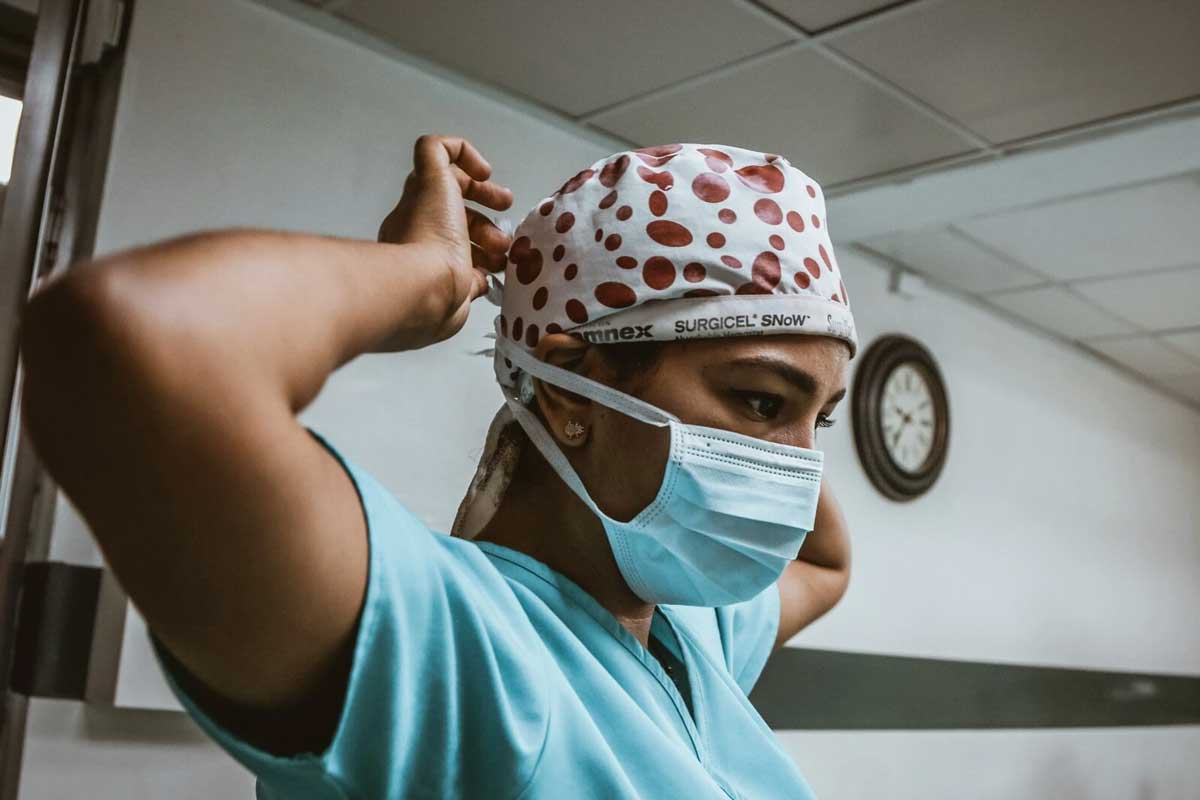Retired nurses turn reinforcements at short-staffed Lagos health facilities
As Nigeria grapples with a brain drain of skilled health workers, retired nurses are being redeployed to the healthcare frontlines in the country’s commercial capital.
- 20 June 2023
- 6 min read
- by Eric Dumo
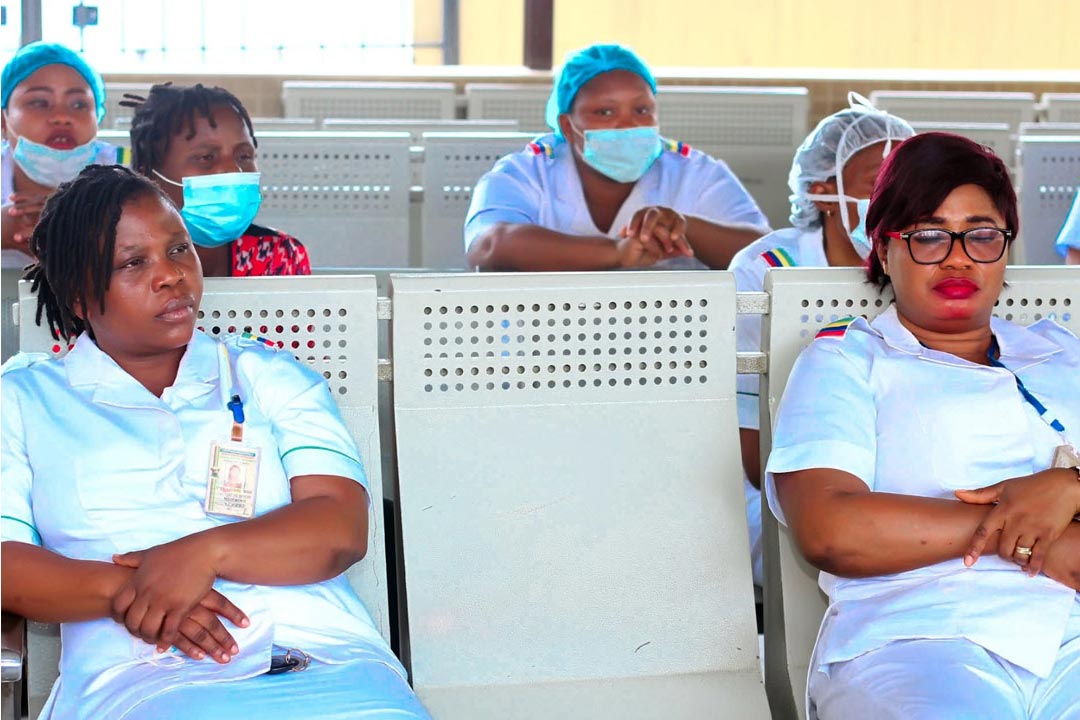
When nurse Anike Mobola reached the compulsory retirement age of 60 and withdrew from her duties at the Ikorodu General Hospital in Lagos, Nigeria, she had several plans lined up ahead of her. Those will need to wait a little while longer.
Rather than taking some well-deserved rest and getting to work on her retirement bucket list, a year later, Mobola is back at the same hospital, attending to the dozens of patients who visit the facility every day. It's a sacrifice she says she is happy to make.
"Though this was not what I planned for myself while embarking on retirement last year, I have no regrets coming back to help the hospital deal with medical cases needing expert attention," Mobola said.
I couldn’t ignore the call. After discussing it with my family, I had to race back to duty to offer my experience to save lives.
– Faith Oribosu, recalled nurse at Gbagada General Hospital, Lagos
"My return to work together with other fellow retirees has really boosted healthcare delivery at the Ikorodu General Hospital," she said. "Patients turn up at the hospital in large numbers every day seeking medical attention, but staff on the ground are grossly inadequate. But with the three of us now recalled from retirement, the situation has improved as we have been able to assist the young nurses very well."

Credit: Eric Dumo
Facing a shortage of skilled manpower in the healthcare system, authorities in Lagos, Nigeria's commercial capital, have turned to retired nurses like Mobola to fill the vacuum.
Nigeria, Africa's most populous country, has over the last three years battled its fiercest brain drain crisis in decades as large numbers of doctors and nurses migrate to foreign lands in search of greener pastures.
Between March 2021 and the same month of the following year, at least 7,256 trained nurses moved from Nigeria to the UK alone, according to the Nursing and Midwifery Council. In the five years from 2017 to 2022, a total of 57,000 trained nurses left Nigeria to other countries in search of better pay and working conditions, revealed Michael Nnachi, President of the National Association of Nigeria Nurses and Midwives.
The situation has left the country's healthcare system on the edge, with one nurse now available per 1,660 Nigerians – far below World Health Organization's recommendation of 25 nurses to 10,000 patients.
But with the move by the Lagos health authorities to engage the services of some retired nurses on fixed contract basis, public healthcare delivery in Lagos has experienced a significant boost.
Like most government-owned facilities, Gbagada General Hospital in Lagos has felt the shortage of experienced medical workers sharply in recent months. The return of some retired veteran nurses, however, has offered relief to the regional immunisation programme, and also made services for pregnant women and nursing mothers more accessible.
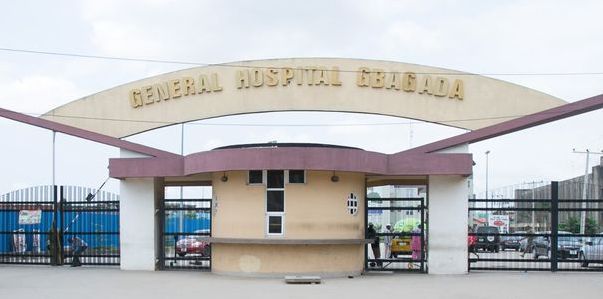
Credti: Eric Dumo
"I was already in my hometown resting after years of active service when I received the invitation by the hospital management to come back to work and provide extra support for the system," said Faith Oribosu, one recalled nurse at Gbagada General Hospital.
"As one who is committed to helping the sick, especially [to making sure that] children and pregnant women receive the best medical care available, I couldn't ignore the call. After discussing it with my family, I had to race back to duty to offer my experience to save lives.
Have you read?
"Though it has not been easy meeting up with the demands on the ground, the presence of those of us recalled from retirement has made a lot of difference in healthcare delivery already. I won't hesitate to take the same decision again if the occasion ever warrants such," Oribosu told VaccinesWork.
According to a senior official in the state's health ministry who asked to remain anonymous, the Lagos Government will continue to explore innovative means to ensure the public has access to quality healthcare – including re-engaging retired personnel.
"The move to re-engage retired nurses and other categories of health personnel to close the gaps created by this brain drain issue has been a huge success so far because public health safety has been maintained to a great deal.
"The return of these experienced health workers has also improved the immunisation and disease prevention drive of the state government, as now visits to different communities, especially rural areas, have been going on more frequently.
"Also, the return of these old hands has ensured that across our public hospitals, patients needing expert attention are attended to in a timely and efficient manner. This shows the importance the state government places on the health and wellbeing of the people of Lagos.
"I believe this strategy will be sustained and also more young personnel will be absorbed into the system to ensure that members of the public continue to enjoy quality medical care at all times. The idea of establishing more nursing schools to produce young and skilled personnel is also in the works. This will equally contribute to improving the healthcare system in Lagos," the official said.

Credit: Eric Dumo
Chairman of the National Association of Nigerian Nurses and Midwives in Lagos, Olurotimi Awojide, said that the return of retired nurses to the health sector in the state was a great development, but added that the government must improve the remuneration and welfare of health care workers, and also provide critical equipment in public hospitals to prevent more young nurses from leaving to find work abroad.
“The return of retired nurses is a good development for the healthcare sector because it will keep experience in the system.
– Olurotimi Awojide, Chairman of the National Association of Nigerian Nurses and Midwives, Lagos>/h6>
According to him, they have been engaging all stakeholders in the sector including new graduands from nursing schools in order to nip the problem in the bud.
"The return of retired nurses is a good development for the healthcare sector because it will keep experience in the system. There was a time we asked government to increase retirement age to 65 and length of service to 40 years. The health sector needs experience and it is a good thing that they are engaging retired nurses to help fill the vacuum created by young medical personnel.
"Most of the young nurses are moving abroad because of poor salaries and unfavourable working conditions in Nigeria. The country's economy is in bad shape at the moment and this is a major factor fuelling brain drain in the health sector and indeed other areas.
"The lack of equipment in hospitals for health workers to carry out their duty effectively is also another dimension to the problem. As an association, we are trying our best to prevent young nurses from abandoning the system and going abroad by engaging all relevant stakeholders frequently.
"We have asked the Lagos Government to increase allowances and other financial benefits and they have yielded to these demands in order to prevent this brain drain issue from further escalating," Awojide said.

